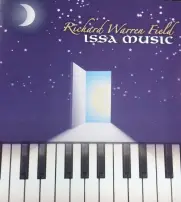Book Commentary/Review – Musicophilia: Tales of Music and the Brain by Oliver Sacks February 15, 2012
Posted by rwf1954 in book review, books, music, Musicophilia, Oliver Sacks.Tags: book commentary, book review, brain disorders, music, Musicophilia, neurology, Oliver Sacks
trackback
As I have written elsewhere, I have recently rediscovered my love of creating and performing music. There is definitely a spiritual connection to this rediscovery, evidenced by my recent release of “Issa Music” and my posts about mystical/spiritual aspects of the music of the progressive rock group Yes (The Poetry of (the Progressive Rock Group) Yes: Introduction to “The Revealing Science of God—Dance of the Dawn” from “Tales from Topographic Oceans” and The Poetry of (the Progressive Rock Group) Yes.) This further relates to spiritual meditations with the theme of more than one path to God, and the possible coming together of both physics and metaphysics (I and II). As part of this, I’m reading a series of seven or so books about the nature of music, looking for mystical/spiritual connections between the material world and the spiritual world as they may be provided by music. This is the first of what will be a series of commentaries about those books.
Musicophilia: Tales of Music and the Brain by Oliver Sacks
The title describes exactly what this is, a string of anecdotes of how music and the brain interact. Many of the anecdotes refer to malfunctions of the brain, and how music is affected by them, an understandable focus given Dr. Sacks’ background as a neurologist. This book does not help me directly with what I described above, “a search for mystical/spiritual connections with music.” The focus is on the details of specific conditions, not a grand theory connecting music to physics and metaphysics. But if I ever needed confirmation of the power of music, evidence that music is wired into human beings, inherent in our natures, Dr. Sacks provides it here.
He starts with a discussion of the music we hear in our minds, moving into full-blown musical hallucinations. He moves from there to losses of musical ability and appreciation, to music savants—people with staggering musical abilities while lacking basic mental function, to how music can treat afflictions from dementia to Parkinson’s disease. This includes stories of people suffering from terrible accidents or disabilities leaving them impaired, but also leaving them with prodigious musical abilities. The anecdotal style makes for fascinating reading—readers interested in how music affects humans will turn pages expectantly to get from one intriguing story to the next. Throughout the book, Dr. Sacks also provides numerous specific stories of individuals dealing with various conditions related to music, including a few personal anecdotes of his own experiences.
Some isolated thoughts triggered by this book relating to my quest for a connection between music and metaphysics/physics:
- With respect to musical hallucinations, Sacks refers to neurophysiologist Jerzy Konorski who instead of asking “Why do hallucinations occur?” asks “Why don’t they occur all the time?” There may be a mechanism in the normal-functioning human brain that blocks hallucinations, helping to sort out reality. But this calls into consideration our barely rudimentary understanding of consciousness, and poses the question of what “reality” actually is. There are is an agreed-upon reality shared by us “normals.” But does majority rule on this? Is our brain function blocking “true reality” (if such a thing as one “true reality” exists)? Is that filter that allows us “normals” to share an agreed-upon reality something that facilitates accurate perception, or something that holds us back?
- Sacks does offer the idea of a broad concept of music, with the only requirement being “discrete tones and rhythmic organization.”
- Sacks explores the idea that imagining music “may be as potent, neurally, as actually listening to it.”
- Sacks does mention briefly that there is evidence human religious practices “began with communal chanting and dancing, often of an ecstatic kind…” Is this simply a human characteristic, or does this mean music is a wired-in route to a mystical/spiritual reality beyond what we see in the material world?



Comments»
No comments yet — be the first.